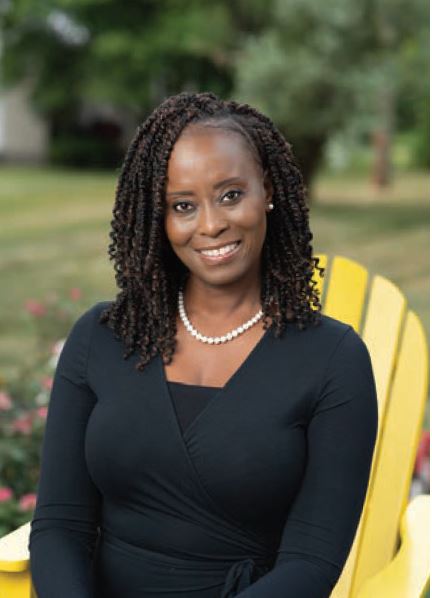MY VIEW: Self-empowerment as an Antidote to Burnout
By Shana Saddler
When my third-hour class behaved badly with a substitute teacher, I was extremely disappointed in my student leaders. The next day, I approached “Maya” (a spirited, driven, yet funny student) and said, “Maya, why did you not step up as a leader and try to positively influence student misbehavior?”

Maya replied, “Mrs. Saddler, when a boat is already rowing, it makes no sense to throw in the anchor!”
At times I have witnessed the same philosophy of not throwing in the anchor from educators adopting silence in this post COVID-19 school climate. They believe if they stay neutral, the problem will dissipate, but we know that if anything, it gets worse.
In this historical moment, educators are facing unprecedented challenges which include school staffing shortages, safety concerns, school violence, low pay, burnout, and lack of respect for the profession, among others.
At the same time educators are called upon to quickly address learning gaps driven by the COVID-19 pandemic while simultaneously tending to students’ precarious sense of well-being and mental health left behind in its wake.
Educators are stressed, and some feel powerless to truly make a difference in these difficult times, but I propose self-empowerment as an antidote to burnout. What does this mean?
Transformative leaders shape schools into places where every student can equip themselves to fully participate in an ever changing global society and educators feel satisfied in the important work they do. Each of us – in our own realms – can be transformative leaders in a renewed conversation about what best serves the public good.
That means in our classrooms, break rooms, department meetings, and administrative offices, we should ask the question: What implicit or explicit message am I sending if I choose to remain silent?
Does my silence perpetuate the status quo of “quiet” work dissatisfaction that has led to the early mass exodus of so many educators?
We need educator voices and energy to fill the spaces of our schools. We are best positioned to know what policies and systems are necessary to better support us, and we can advocate for changes and improvements as professionals and union colleagues.
The opportunities are many, and yours may vary, but a few stand out among my interests:
Building Relationships With Families / Family-school partnerships create teamwork between parents and educators. For example, I’ve heard of districts having volunteer parent liaisons to help weave strong community relationships.
What could be done better to create this strong foundation in your classroom, building or district?
Professional Development / I believe professional development is key to creating and maintaining a school culture aligned with an organization’s shared vision. Great PD benefits student learning and empowers educators to meet growing academic and social-emotional demands.
What PD would benefit educators of all kinds in your school district and who could deliver it?
Restorative Practices / Michigan law requires that public schools use RP in discipline practices to help students develop conflict resolution skills. I encourage educators to learn about and use available support services in your district or to raise the issue if existing programming isn’t working well.
How can we be strengthened and better equipped to collaboratively resolve issues and move forward?
It takes time and intentionality to foster a positive school climate and more supportive systems. As this holiday season approaches, take time to reflect, recharge, and choose self-empowerment as the antidote to burnout. Throw in your anchor!
Shana Saddler is a veteran Farmington Hills teacher. For comments or questions, reach her at shana.saddler@fpsk12.net.

